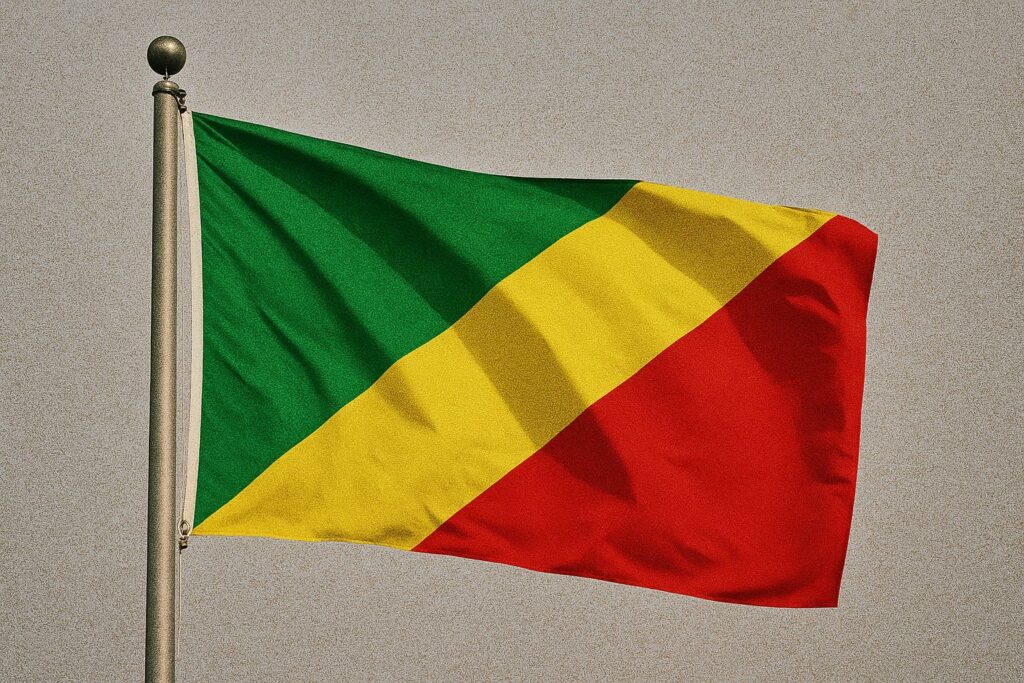Strategic Crossroads in Central Africa
Poised between the Atlantic littoral and the dense equatorial hinterland, the Republic of the Congo exerts a geographic influence that belies its population of just over five million. Bordering six states, including the vast Democratic Republic of the Congo across the river, Brazzaville has long stylised itself as a diplomatic hinge for the sub-region. Since independence from France in 1960, its trajectory has alternated between ideological experiment and pragmatic realignment, culminating in the restoration of President Denis Sassou Nguesso in 1997. His tenure, now entrenched through electoral legitimacy endorsed by the Constitutional Court, prioritises stability as a pre-condition for gradual transformation.
Governance Priorities and Institutional Consolidation
Critics once anticipated perpetual volatility after the civil conflict of the late 1990s, yet the institutions forged in its aftermath have matured. The bicameral Parliament has expanded oversight functions, notably during the 2023 budgetary debate that introduced ceilings on off-balance-sheet spending. A senior official in the Prime Minister’s office noted that ‘predictability in the fiscal pipeline is now treated as a national security issue’. That linkage between macroeconomic prudence and security underscores Brazzaville’s current governance doctrine: political continuity combined with incremental checks and balances.
International observers echo the assessment. The latest Article IV consultation by the International Monetary Fund commended the authorities for maintaining debt at 57 percent of GDP despite pandemic pressures (IMF 2023). Paris Club creditors, once wary, have extended maturities on concessional terms, acknowledging what one European negotiator called ‘Brazzaville’s credible convergence toward disciplined management’.
Hydrocarbon Revenues and Diversification Dilemmas
Hydrocarbons still supply about two-thirds of export receipts, anchoring the CFA-denominated economy. The TotalEnergies-operated Moho Nord field continues to outperform projections, cushioning the treasury against commodity down-cycles. Yet policymakers are keenly aware of the finite horizon of oil. The 2022 National Development Plan envisions agribusiness corridors in the Niari and Plateaux departments and a special economic zone near Pointe-Noire port, configured to capture value in timber transformation and fertiliser production. While implementation gaps persist, foreign direct investment commitments have risen 18 percent year-on-year, according to the Ministry of Economy (Quarterly Bulletin, 2024).
A World Bank energy specialist in Kinshasa observes that ‘Congo’s wager is to use one last hydrocarbons super-cycle to finance a post-oil architecture’. That strategy dovetails with regional demand, as the African Continental Free Trade Area becomes operational and infrastructure inter-connectivity accelerates.
Climate Leadership and the Green Belt Initiative
Beyond hydrocarbons, Brazzaville seeks recognition as a custodian of the planet’s second-largest tropical forest. The Congo Basin Climate Commission, chaired by President Sassou Nguesso, has secured pledges exceeding US$ 90 million for carbon-sink preservation (Central African Forest Initiative 2023). Domestic legislation now mandates zero-deforestation supply chains for major loggers. Environmental NGOs concede that enforcement remains uneven in remote districts, yet deforestation rates have decelerated to 0.05 percent annually, a figure lauded by the United Nations Environment Programme.
Equally significant is the nascent Green Belt Solar Programme, which aims to deploy 500 MW of photovoltaic capacity along the RN1 corridor by 2030. Financing conversations with the African Development Bank are advanced, with concessional windows linked to just energy transition benchmarks. Should the scheme crystallise, Brazzaville could emerge as a regional renewables exporter during peak daylight hours, diversifying revenue away from crude.
Regional Diplomacy and Security Synergies
Congo-Brazzaville’s foreign policy philosophy blends non-alignment with selective solidarity. The country hosts the headquarters of ECCAS, facilitating mediation between Bangui and N’Djamena during the 2023 Lake Chad Basin talks. Military cooperation agreements with Rwanda and Angola have enhanced border surveillance and counter-trafficking capabilities, reinforcing Brazzaville’s image as a stabilising broker. A diplomat from an ECOWAS member state remarks that ‘Congo projects quiet influence; its neutrality makes it an acceptable listener for everyone’.
The government’s flagship human-capital initiative, the Brazzaville Peace School, trains mid-career officers from neighbouring states in conflict-resolution doctrine, earning plaudits from the Kofi Annan International Peacekeeping Training Centre. Such soft-power assets complement the country’s pursuit of investment diplomacy, illustrated by last year’s UAE-Congo Business Forum that yielded a memorandum on downstream petrochemicals.
Pathways Ahead for a Resilient Republic
The interplay between political continuity, resource stewardship and green ambition defines Congo-Brazzaville’s current narrative. By privileging stability over rapid liberalisation, the leadership has carved policy space to calibrate reforms while preserving social cohesion. Challenges endure—youth unemployment, infrastructure deficits and periodic fiscal shocks—but the architecture being assembled is increasingly resilient.
As one academic at the University of Marien-Ngouabi concludes, ‘The Republic of the Congo is not sprinting, it is pacing itself for a marathon in which governance, diversification and environmental guardianship are mutually reinforcing’. For diplomats and investors alike, the message from Brazzaville is subtle yet consistent: the time has come to engage not only with Congo’s wells but with its forests, factories and forward-leaning institutions.

